A multidisciplinary exhibition with the theme ‘Nourishment’ opened recently at Nahous, Lagos’s newest cultural landmark, housed within the historic old Federal Palace Hotel. The exhibiting artist, Leonard “Soldier” Iheagwam dives a bit deeper into the ideas behind the show and how “Nourishment” reimagines everyday food items as symbols of survival and identity. He spoke to Ferdinand Ekechukwu about his body of work, which reflects his upbringing, depicts his thoughts of the civil war, and the economy. Excerpts
Going by your profile through the installations here, in retrospect, some of the food items that made up the collections connect to your childhood. Speak more on the theme “Nourishment’ and the exhibition
I feel like you can know a nation and know the in-and-out of the people by looking at certain things: by looking at music, looking at writing, and in this case by looking at food. I feel like I use food as a way to describe Nigeria as a whole, I mean as much as I could with the couple of paintings and landscape sculptures. You know Nigeria is like a very agricultural country; you can grow tomatoes today and you can reap it, let’s say a couple of months and look forward. But then everything started for me or the introspection started for me, because of the Biafran War. So I’m Igbo. And the one thing that I got growing up or the kind of tale I was told was about the Biafra war, which has kind of influenced my art in a way. I think because of this war that happened there was like an influx of relief food, you know, you had all these foods come in sachets. Because it’s a war, a civil war, and that kind of opened the gap to all the different companies coming in, you know, you have like your Gala, and your Peak. And you know, all these foods are not necessarily the healthiest foods, they are very processed. As a child, I grew up having Milo and milk, which has a certain amount of sugar. But it was normal for me. And you know I think if you look at the Nigerian economy, everyone is really not doing that well (giggling). And so the easiest thing rather than getting fresh food because fresh food I wouldn’t lie to you is quite expensive. Even in England to buy fresh food is more expensive than buying like a one dollar, terrible spice of pizza. It’s the same here. And all these brand like you see it not only did it come in at your childhood if you remember your this and that; these foods are not necessarily that good and they show the economy of the Nigerian people. So that was what I was trying to do. So I made a body of work that reflects my upbringing, the civil war, and then just what we have right now as a country.
Talking about the civil war, you weren’t born then?
I wasn’t but my dad was there (laughing)…
So you drew from that experience shared by your dad. And have connected with it one way or the other. Now some of these items that made up the body of work are quite beyond reach as it seems majority cannot afford them now, due to economic factor?
And that’s the problem, because my time, when I was growing up, my parents were not the wealthiest; things were cheaper compared to the fact that now we can’t even afford even shows, there’s a bigger disparity happening, and that’s why this work is so important. So if people can’t afford freshly made food, and if people can’t even afford things in sachet and tin cans, then what’s happening to this country? So what are we doing? So this work, it might look very inviting and it might look very bright, but it’s very sinister. There’s enough pain, there’s a lot collective pain. And more things are happening right now in this country and in this world that I could like feel it. You know, I remember like after church on Sundays back then I would have like 10 naira buy some biscuits and sweets. Again 10 naira then can get you a lot of biscuits and sweets as a kid. I don’t know what 10 naira can get you now. You can’t even see 10 naira. You know that’s the problem. I feel like this work is just showing consumerism culture of the economy and just exactly where Nigeria is but doing it in a very inviting way, with bright colours, it’s nostalgia but there’s something deeper into it.

Are there some products that you recalled would have been displayed here that you couldn’t get among?
A lot, actually, more than I can actually pick up. Some many that growing up I can’t even remember them now because probably they don’t exist anymore. I don’t even know. Many of these brands right now, I don’t even know which is which. And also, if you realise, many of these brands are not even benefiting the Nigerian people that much. It’s empty. And that’s why you see the final piece is the sculpture with the black stomach. Because when you notice all of the paintings are very colourful and bright, but that is black. And that shows decay and rot; it shows that absolutely consume all these things means nothing. But at the same time we have to do what we have to do to survive and people keep consuming these things because at sometimes we don’t even have any choice. So again here we are now, like in this economy, in this world as people and what can we do but to tell our stories the best we can.
Can you share a bit of your background, and at what point did you leave the country?
I was born and raised here; I left in 2019 I got scholarship to study at the University of West Minister, in London in Fine Arts and Graphic Design. After that I lived there for like 5 years, I’m just 25 and now I’m back with my first solo show here in Lagos at Federal Palace which obviously has a history. So it’s very historical I would say.
This is your first solo exhibition you said?
In Lagos, but I have done London, I have done Milan. This is my first after coming back home.
How do you want this show to resonate with the people out there? What is the message to those outside here?
I think the message is the same because, again, I am channeling this thing called pop arts – popular culture arts – done by Andy Warhol. The Americans are the first people to get into that. And the idea is the same thing that they did there. They are using popular culture to show the economy, to show what people consume and to show how things are going. And I think that they would be able to understand it because with what I’m doing here is just like an echo of what they have done in America. But I’m just doing it the Nigerian way. And I feel like not many artists in Nigeria doing it this way. So this is very new for me and this is very refreshing. And this is like a break from African art, being very figurative and about the people to know about what we consume.



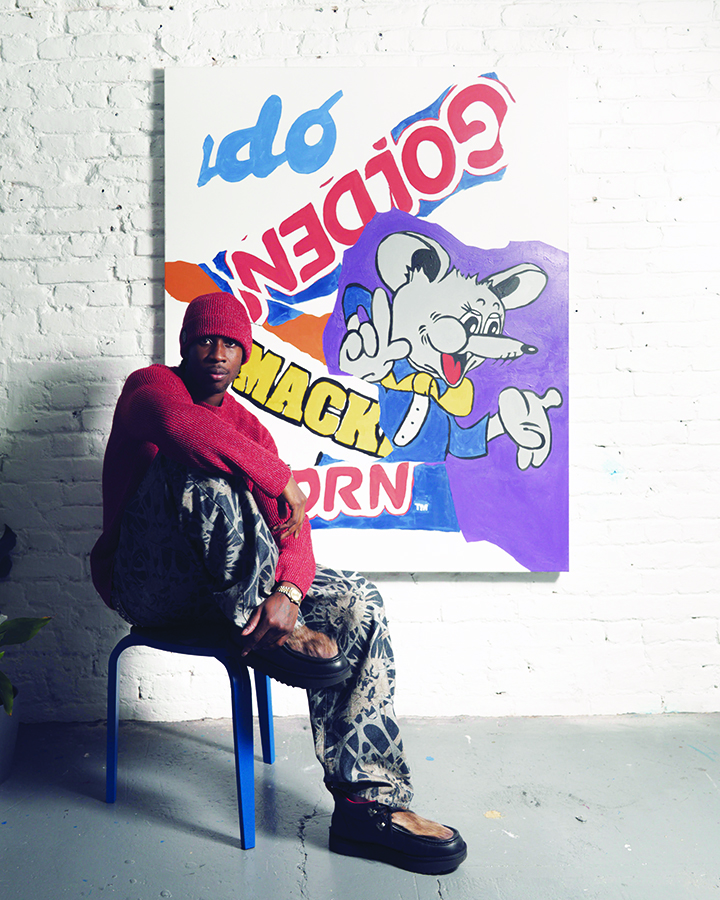
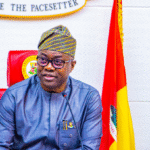



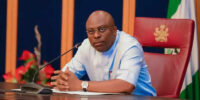
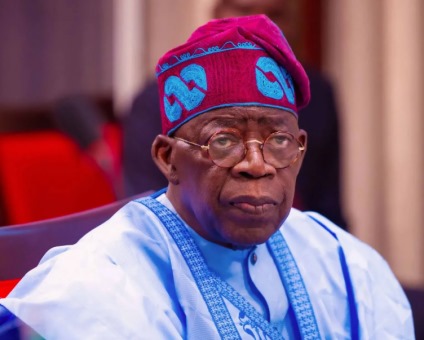
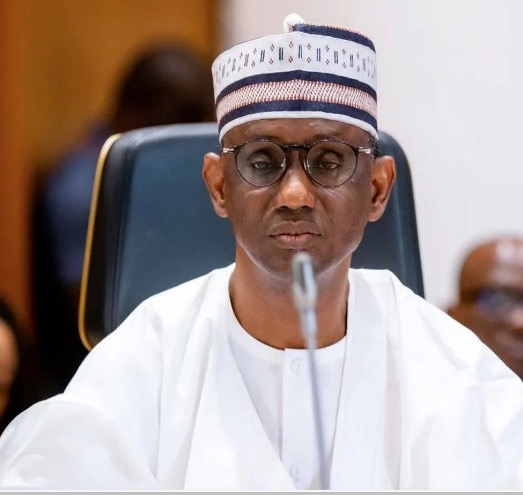
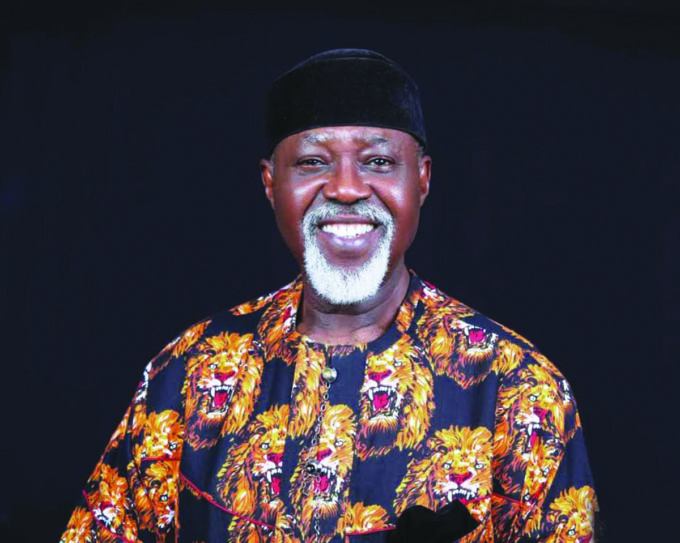





Leave a comment